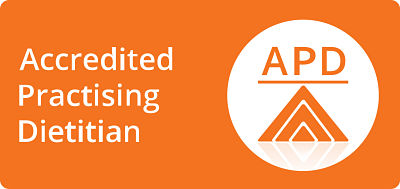Coping with food allergies

What do you do when your child's best friend is coming over but can't eat nuts or eggs or dairy (or any number of other common ingredients)? What can you bake for a birthday cake or whip up for a safe after-school snack? Here's help for the food adverse.
Food allergy on the rise
Food allergy is a very real thing for around one in every 20 children. And it's on the increase for reasons researchers don't fully understand.
Most childhood food allergies are mild and disappear with time. For example, allergy to egg is most severe in toddlers but around 80 per cent of them ‘grow out' of it by the time they start school.
Unfortunately allergies to peanuts, tree nuts, seeds and seafood tend to remain for life and can cause a severe life-threatening reaction known as anaphylaxis, where the mouth, lips and throat swell causing difficulty in breathing and at times fatal collapse.
Once diagnosed, parents must be vigilant about all food their child eats and carry an Epipen of emergency adrenalin to administer in case of accidental ingestion. Visiting friends or having a birthday party can be a huge and tiring exercise.
Tips for a normal life
As a parent of a child with a food allergy - especially one such as peanut which can trigger life-threatening anaphylaxis - leading a normal life can seem impossible. Below are 10 tips on how to keep food allergy from overwhelming your family life from Anaphylaxis Australia Inc.1. Plan ahead
- Plan ahead.
- Always read all food labels
- Understand different ingredient names
- Educate those around you
- Take safe food with you where ever you go unless you know safe food is available
- Keep up to date with product changes and the latest research
- Always allow plenty of time to do the grocery shopping
- Don't hesitate to ask questions
- Have an ‘emergency drill' from time to time checking expiry dates on your EpiPen
- Become an AA member
For more tips, visit the website of Anaphylaxis Australia.
Where to go for help
- Never diagnose an allergy yourself. Always have your child assessed by a professional, either an accredited practicing dietitian, paediatrician or immunologist.
- Don't keep a young child on a restrictive diet for long periods eg more than a month. The elimination diet is unbalanced and inadequate in some minerals and vitamins, which can play havoc with their growth and development. So if a special diet is needed, it should be prescribed and monitored by an expert.
- For example, if you take your child off dairy products, you remove the single largest source of calcium in a child's diet as well as removing much protein and vitamin B2. How are they going to obtain their required calcium for bones and teeth? You'll need to come up with substitutes like calcium-enriched soy milk or a calcium supplement in the right dose for that age. A dietitian can help here.
 To find an Accredited Practicing Dietitian:
To find an Accredited Practicing Dietitian:
Go to the website of the Dietitians Association at www.dietitiansaustralia.org.au or call 1800 812 942
To find an immunologist or for access to info and online training:
Go to the Australasian Society of Clinical Immunology at www.allergy.org.au
To find diet information on allergies:
The website of the Royal Prince Alfred Hospital Allergy Unit in Sydney is an excellent resource at www.slhd.nsw.gov.au/rpa/allergy. Or call 02 9515 3300 for an appointment





